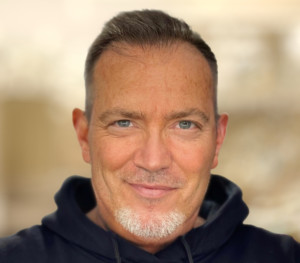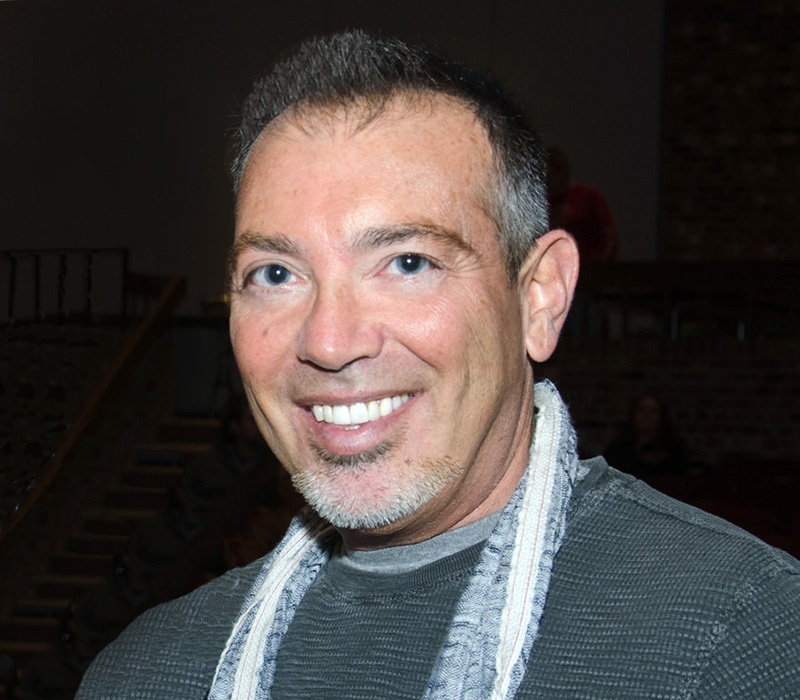By Jerry Avenaim | FOUNDER |
May is mental health awareness month, and I would like to take this opportunity to explain what that means, and how you can partner with us to create an impact in your community through raising awareness.

First, as the founder of the Mental Health Foundation, I would like to say the following about why this is personal for me, and why I had to start the foundation.
I have enjoyed a career as an award winning fashion, celebrity photographer and director, with my work featured in Vogue, GQ, Vanity Fair, Newsweek and People Magazine.
In public I am the photographer to the stars of Hollywood, with appearances on many television shows including America’s Next Top Model and Dr. Phil, but in private I have battled anxiety as well as depression for much of my adult life.
Every day millions of people struggle with mental health conditions, and they often suffer alone and in silence because of the stigma surrounding mental health conditions.
Like many others, I too have lost loved ones to addiction and suicide over the years, and after Robbin Williams untimely passing I decided to stop sitting on the sidelines while so many suffer, feel misunderstood, alone and without options.
I merged my own experiences fighting depression and anxiety with my passion and life long career as a top-tier photographer to create The Mental Health Foundation, where the vision is to break the stigma and to give a voice to those who cannot speak, and hope to those who feel hopeless through raising awareness. Together no one is alone and together we can bring great change.
TABLE OF CONTENTS
- What is Mental Health?
- What causes mental health conditions?
- How would I recognise warning signs?
- Who is affected by mental health conditions?
- Who do you know that could be experiencing mental health issues?
- What is Mental Health Awareness Month?
- When is Mental Health Awareness Month?
- What is the Mental Health Awareness color?
- What are key dates on the mental health calendar for the 2021 awareness month?
- Why is Mental Health Awareness so important?
- What are some ways I can be involved in raising awareness and making a difference?
- What are some Mental Health awareness quotes I can share online?
- Mental Health Statistics
By Jerry Avenaim | FOUNDER |
May is mental health awareness month, and I would like to take this opportunity to explain what that means, and how you can partner with us to create an impact in your community through raising awareness.
First, as the founder of the Mental Health Foundation, I would like to say the following about why this is personal for me, and why I had to start the foundation.
I have enjoyed a career as an award winning fashion, celebrity photographer and director, with my work featured in Vogue, GQ, Vanity Fair, Newsweek and People Magazine. In public I am the photographer to the stars of Hollywood, with appearances on many television shows including America’s Next Top Model and Dr. Phil, but in private I have battled anxiety as well as depression for much of my adult life.
Every day millions of people struggle with mental health conditions, and they often suffer alone and in silence because of the stigma surrounding mental health conditions.
Like many others, I too have lost loved ones to addiction and suicide over the years, and after Robbin Williams untimely passing I decided to stop sitting on the sidelines while so many suffer, feel misunderstood, alone and without options.
I merged my own experiences fighting depression and anxiety with my passion and life long career as a top-tier photographer to create The Mental Health Foundation, where the vision is to break the stigma and to give a voice to those who cannot speak, and hope to those who feel hopeless through raising awareness. Together no one is alone and together we can bring great change.

TABLE OF CONTENTS
- What is Mental Health?
- What causes mental health conditions?
- How would I recognise warning signs?
- Who is affected by mental health conditions?
- Who do you know that could be experiencing mental health issues?
- What is Mental Health Awareness Month?
- When is Mental Health Awareness Month?
- What is the Mental Health Awareness color?
- What are key dates on the mental health calendar for the 2021 awareness month?
- Why is Mental Health Awareness so important?
- What are some ways I can be involved in raising awareness and making a difference?
- What are some Mental Health awareness quotes I can share online?
- Mental Health Statistics
What is Mental Health?

According to mentalhealth.gov mental health includes our social, emotional and psychological well-being, and that each of these govern our feelings, thoughts and actions as well as shape our relationships, decision making and the way we cope with stress.
The WHO (World Health Organization) describes mental health disorders as being typically defined by a mix of perceptions, abnormal thinking, emotions, relationships and behaviors. Most commonly these are seen as bipolar, depression, dementia, psychoses like schizophrenia, as well as developmental conditions like autism.
For more information on the various conditions, visit our condition descriptions in sections of disorders including the following groupings
| Anxiety | Childhood |
| Cognitive | Eating |
| Mood | Personality |
| Schizophrenia & Other Psychotic | Substance related |
Some websites may present different groupings such as the “Impulse Control and Addiction”, “Factitious”, “Sexual or Gender” , or “Somatic Symptom” disorders as are seen on WEBMD.
For more information on the various conditions, visit our condition descriptions in sections of disorders including the following groupings
- Anxiety
- Childhood
- Cognitive
- Eating
- Mood
- Personality
- Schizophrenia & Other Psychotic
- Substance related
Some websites may present different groupings such as the “Impulse Control and Addiction”, “Factitious”, “Sexual or Gender” , or “Somatic Symptom” disorders as are seen on WEBMD.
What causes mental health conditions?

There are a number of known triggers for many conditions or disorders, and there are also risk factors that can make certain people more susceptible to experiencing issues. The government Mental Health website indicates that for many people, the bulk of contributing elements include:
- Traumatic experiences
- History of mental health issues in the family
- Brain chemistry, genetics, or other biological factors
How would I recognize warning signs?
Without becoming a mental health professional you would not be able to make a diagnosis, but depending on the specific condition or its severity, if you observe one or a few from the following list, they may be warning signs that someone is suffering.
- Extremes in eating (not enough or too much)
- Withdrawing from social interaction with family or friends
- Reduction or cessation of favorite pastimes
- Slight or severe reduction in energy levels
- Development of apathy
- Feeling
- Numb
- Hopeless
- Helpless
- Unexplained medical conditions
- Increased frequency or taking up using drugs, drinking or smoking
- Being abnormally angry, forgetful, scared, confused, or worried
- Fighting or having angry outbursts with friends, family co-workers
- Ongoing mood swings that cause severe relationship issues
- Constantly reliving unwelcome memories
- Obsessing on particular thoughts
- Hearing voices
- Having thoughts of harming others or oneself
- Unable to look after kids or leave the house to go to school or work
Who is affected by mental health conditions?

Whether we know it or not, either directly or indirectly it affects all of us in some way, and the degree of impact from Mental Health issues can vary from
- being unsettling
- robbing someone of peace or hope for today or for the future
- debilitating and preventing individual from leaving home, and or keeping a job or relationships
- or leading to suicide.
There are no nationalities, genders, ages, religions, political affiliations, beliefs, professions, levels of education, relationship status, or net worth where people are not susceptible to suffering from mental health issues. It can affect:
| Preschoolers | Middle schoolers |
| High schoolers | School drop outs |
| College students | The unemployed |
| The employed | The rich |
| The poor | Moms |
| Dads | Famous people |
| Athletes | Musicians |
| Politicians | Models |
| Actors | Business people |
| Single People | Married people |
Who is affected by mental health conditions?

Whether we know it or not, either directly or indirectly it affects all of us in some way, and the degree of impact from Mental Health issues can vary from
- being unsettling
- robbing someone of peace or hope for today or for the future
- debilitating and preventing individual from leaving home, and or keeping a job or relationships
- or leading to suicide.
There are no nationalities, genders, ages, religions, political affiliations, beliefs, professions, levels of education, relationship status, or net worth where people are not susceptible to suffering from mental health issues. It can affect:
- Preschoolers
- Middle schoolers
- High schoolers
- School drop outs
- College students
- The unemployed
- The employed
- The rich
- The poor
- Moms
- Dads
- Famous people
- Athletes
- Musicians
- Politicians
- Models
- Actors
- Business people
- Unknown people
- Single People
- Married people
Who do you know that could be experiencing mental health issues?

Anyone you know could be suffering without those around them knowing. They could be a
| Sibling | Parent |
| Child | Grandparent |
| Uncle | Aunt |
| Cousin | Teacher |
| Friend | Spouse / partner |
| Employer | Employee |
| Co-worker | Neighbor |
Who do you know that could be experiencing mental health issues?

Anyone you know could be suffering without those around them knowing. They could be a
- Sibling
- Parent
- Child
- Grandparent, Uncle, Aunt, Cousin
- Teacher
- Friend
- Spouse / partner
- Employer
- Employee
- Co-worker
- Neighbor
What is Mental Health Awareness Month?
Since 1949 the month of may has been Mental Health Awareness month. During this time you will see movie screenings, events in your local community, and stories in the media around raising awareness.
This national movement is an opportunity for focused attention and discussion on the topic of Mental Health. Now more than ever, this is particularly important with how so many of us are impacted by the COVID-19 pandemic since we are dealing with more stress and anxiety than in recent times due to unparalleled uncertainty in these times combined with the need for social distancing.
Through this month long conversation people can understand more about various Mental Health conditions and help to end the stigma as we work together to normalize the discussion as well as the topic of treatment.
One of the by-products of Mental Health Awareness Month is that for those who suffer, their journey is lightened when they see so many in the community talking about mental health, and this helps them feel less alone.
When is Mental Health Awareness Month?
May is Mental Health Awareness Month in 2021.
What is the Mental Health Awareness color?
The color green is the internationally recognized color for mental health awareness, and this is most commonly seen in a ribbon symbol. This green can be seen in our Mental Health Foundation logo and in various places around our site.
What are key dates on the mental health calendar for the 2021 awareness month?

- Children’s Mental Health Awareness Week May 2nd – 8th
- National Older Adults Mental Health Awareness Day – XXX
- National Prevention Week May 9th – May 15th
- May 11: Opioid & Prescription Drug misuse prevention
- May 12: Underage Drinking and Alcohol prevention & Misuse
- May 13: Youth Marijuana and Illicit Drug Use Prevention
- May 14: Youth Vaping, E-cigarettes, and Tobacco use prevention
- May 23 – May 29: SchizophreniaAwareness Week
The month of may is also Borderline Personality Disorder awareness month.
Why is Mental Health Awareness so important?
Awareness is important for a number of reasons including being able to identify symptoms of anxiety, depression, acute stress or other conditions and understand when someone you care about may need help. This includes
- You
- Family or loved ones
- Friends or coworkers
Many times it is not always immediately apparent that an individual is suffering, and for those who are, the degree to which their life is being impacted is not always accurately defined through the severity of observable symptoms.
For those who don’t have members of their family or close friends who have disclosed mental health struggles, it is still possible to make a difference in the lives of those around us by being more aware of
- The different conditions,
- Their symptoms,
- And possible triggers etc.
In addition, with increased awareness society changes, and the average person is more conscious of mental health for themselves and for others. With these advances in collective thought we begin to see changes made which have impact at the communities, city, state and national level. In recent weeks changes there have been a number of stories in the press about how changes are being made in regards to increasing the options available in response to 911 callers.
In an article entitled There’s a new approach to police response to mental health emergencies. Taking the police out of it, CNN reported on the launch of the non-police Street Crisis Response Team in San Francisco. The program started in February, and by the end of March 2021 there will be 6 teams of medical professionals and health care clinicians responding to non-violent addiction and mental health 911 calls. Additionally, KXAN in Austin Texas reported that there is a new option presented to 911 callers where they can connect immediately with an on-site mental health professional.
What are some ways I can be involved in raising awareness and making a difference?

It’s not just other people – awareness starts at home, and part of being in a good place to help those around you is to do a self inventory to see if there is anything you might need. For you or a loved one, the steps to a healthier mental life may include:
- Becoming consistently physically active
- Reconnecting with family and friends
- Finding a passtime
- Establishing routine in your life
- Becoming more positive through cultivating gratitude and controlling your thoughts
- Take an online mental screening like this one
- Seeking professional helping needed
Being in a healthier mental place allows people to better handle stress, live up to their potential, be more productive, live longer and healthier lives, and be a valued contributor in the community.
In looking to take steps to help others, consider some of the following
- Learn about conditions, their impact, symptoms, treatment etc – The more you know, the easier it will be to be compassionate, and to make a difference.
- Set time aside to think about the potential for you to harbor any bias or have thought processes which are rooted in stigma based thinking.
- Be an advocate within your friends and family, at work or at school.
- Show understanding, acceptance and respect to those who struggle with mental health conditions in your in-person conversations as well as in your online social presence.
- Thoughtfully consider sharing your story either with family and friends or online. Another person voicing their struggles and how they have coped or treatment they have received helps others feel less alone.
- Support a non-profit mental health organization, and be a part of their efforts to #breakthestigma and raise awareness.
- Share this blog post on your Facebook page and on other social media apps.
- Choose the Mental Health Foundation for your birthday fundraiser on Facebook.
Inspire others to join with you in raising awareness by following the above steps.

Mental health statistics

To add more texture to the information surrounding mental health and why mental health awareness is so important, it is essential to provide some level of detail on the numbers associated with mental health here in the US.
Our next post leading up to mental health awareness month will address this with some high level statistics as well as a closer look at some specific pockets of information so you will have more of an overall picture along with specific trends in mental health during COVID-19.
In addition to some of our readers learning something new, we trust that some may also become equipped with talking points as they look to find opportunities to raise mental health awareness within their own circles.
Thank you so much for your interest in learning more about mental health awareness and for doing what you can to help during May 2021 and for the remainder of the year.
~ Jerry Avenaim
Subscribe to get notifications about future articles.
About the Author: Jerry Avenaim – Contributor


